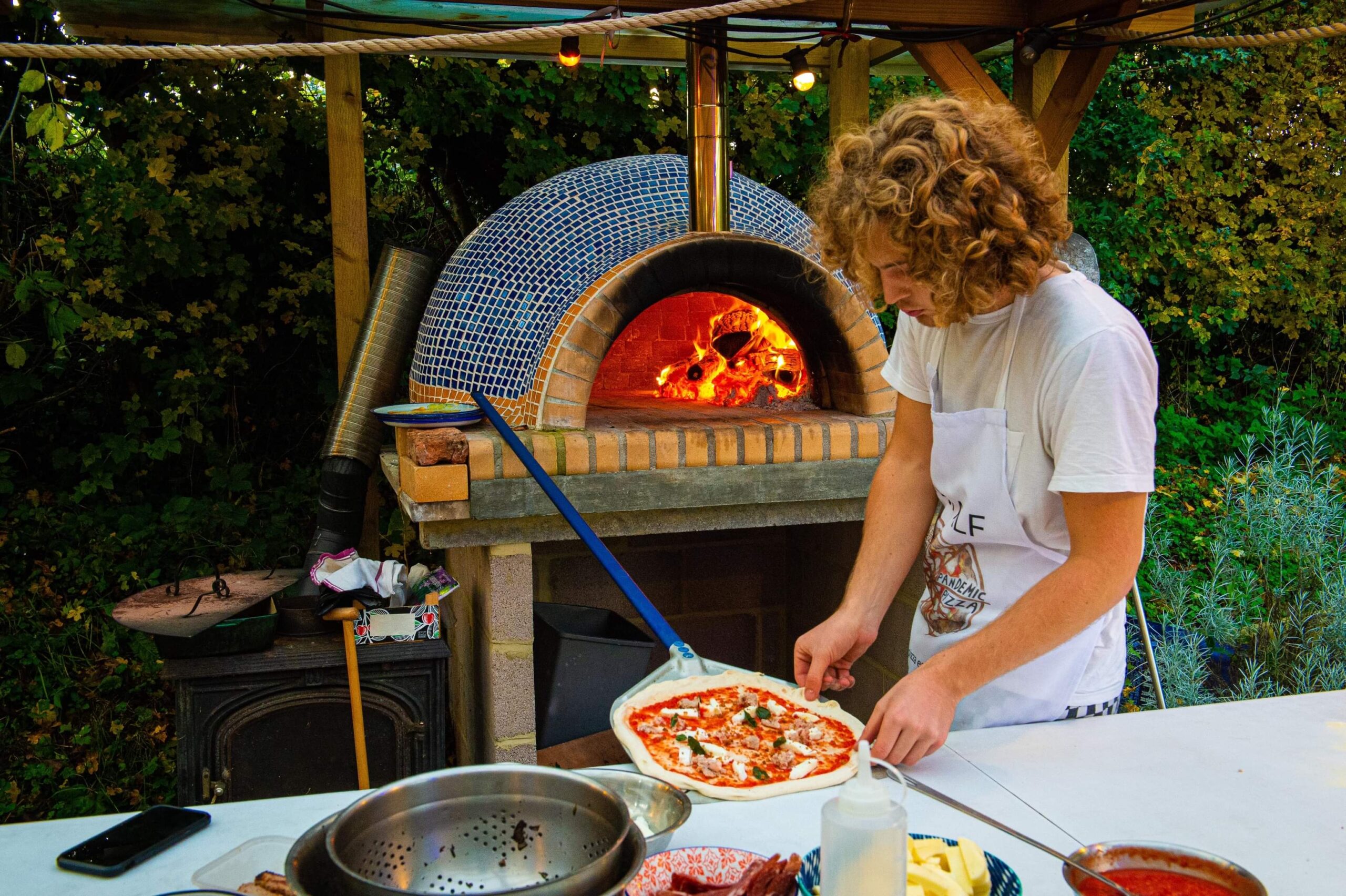The student diet has never been known for its culinary excellence or nutritional value. A rustic form of needs-based ingestion, it is a trope recurrently used to illustrate the flippancy of youths who prioritise their social lives over their nourishment. While Pot Noodles continue to emancipate struggling freshers worldwide, some students are beginning to push back against that stereotype, proposing cheap solutions to help their peers to navigate the infamous world of collegiate food consumption in a healthier way, both for them and for the planet.
One such pioneer is final-year English Literature student and pizza chef Alfie Fletcher, who has shared a slice of his vision with The University Times for the future of student meals. Starting at the helm of the non-profit food truck Pandemic Pizza and moving onto professional gigs in restaurants, he now aspires to encourage people to “take action” through what they eat.
Pandemic Pizza was originally born out of a lockdown-induced longing for the Italian staple, as Alfie started to cook wood-fired Neapolitan pizzas at home for his family in the UK. However, their appetites could not keep up with his growing supply: “I was making too many for my family so instead I decided to make them for as many people as possible and give them away for free.”
Alongside his sister Amber and girlfriend Allegra Della Ragione, Alfie embarked on a journey of learning, cooking and “lots of trial and error”, creating a unique way to give back to the community. Their efforts supplied thousands of free meals to NHS workers and the homeless, whilst they themselves picked up invaluable skills.
Upon returning to Ireland, Alfie wanted to continue this practice and relied on his experience to bag himself a job at Village Pizza Dublin. “If I hadn’t done Pandemic Pizza, there’s no way I’d have got a job in a pizzeria”, he recalls. With the sizeable cost of culinary schools as well as their general inaccessibility, Alfie’s bundle of hand-written letters and promises to learn fast prove that you don’t have to fork out thousands to get your foot in the door of a kitchen.
“In a lot of restaurants, the most important thing is how the food tastes”, explains Alfie. “However, there are many more aspects that go into the meaning of food and the act of creating it for others.” He credits The Felix Project, a London-based food initiative, as a source of inspiration. It showed him “the ways in which food can be used as a social mission, how it can go far beyond taste and flavour”. It was this that pushed him to dedicate his Instagram page @alfthechef to “environmentally-friendly recipes suitable for everyone”.
Prioritising food over aesthetics, Alfie’s recipes are more than just a source of student sustenance – they delve into the invisible links between the food we eat and the environment we inhabit. “Students are very important for driving change in the world, particularly with climate-related issues”, he explained. “I believe that what you choose to eat is the most important climate decision you make on a daily basis.”
He prefers to focus on traditional recipes, tweaked to adapt to Irish produce. For Alfie, the provenance of the ingredients used is as important as their taste: “There’s no point in making a traditional gazpacho in Ireland in December with tomatoes that have been flown in from abroad.” Nutrition is one aspect of Alfie’s focus, but the environmental impact of his recipes is paramount.
“In the same way that people might find healthy food more delicious, I find food that’s good for the environment more delicious.” This is one of the reasons behind his love for Italian food: “Its tradition has an environmental focus… [Italians] just naturally cook with ingredients that are local to them, which are inexpensive and produce little waste.”
By combining these methods with local foodstuffs, Alfie shows us that you don’t need a hefty budget or outlandish ingredients to nourish yourself in an environmentally-friendly way. “Making nice meals is often considered to be an expensive thing”, he admits, “but on a whole, knowing how to cook will save you so much money”.
As students return to university and the cost of living continues to rise, Alfie’s story and his advice might offer you some food for thought and inspire you to approach cooking from a new perspective.







